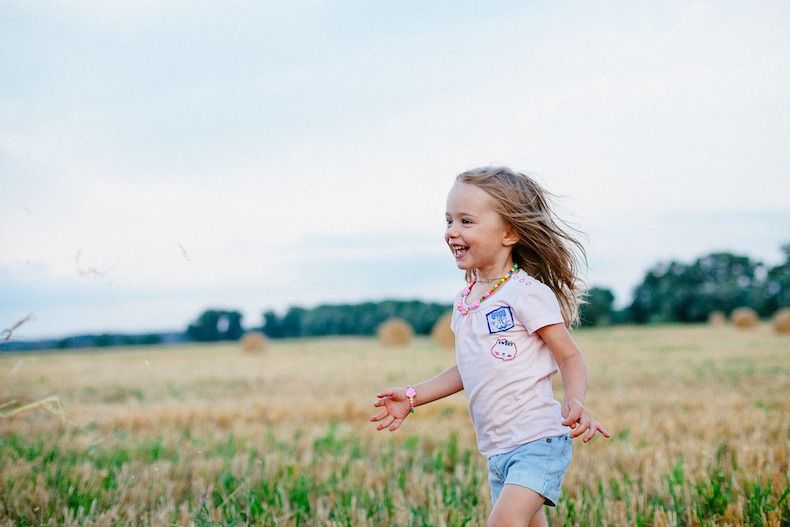Your extroverted child could be a highly sensitive child. In this article, we explain how you can find out if your extroverted child is a HSC.
Estimated reading time: 9 minutes
Do You Think That Your Child Is A Highly Sensitive Child?
Are you a parent and raising an extroverted child? Do you think that because your child is extroverted, it is impossible for him or her to be highly sensitive? Think again!
There is a chance that your child in fact is a highly sensitive child (HSC). Read here why it is important to know if your extroverted child is highly sensitive and how to identify the trait in them.
The Common Misconception When It Comes To Highly Sensitive Children
When people describe highly sensitive children, they usually call them shy, introverted and calm: they are the children who don’t want to be the center of attention and whom you find somewhere in the corner drawing or playing with lego’s. Rarely would people call a highly sensitive child extroverted and wild.
It is a common misconception that highly sensitive children always have to be introverted and shy. As a result, many extroverted highly sensitive children wander around wondering why they feel and experience so differently compared to other children around them. However, there are many different types of highly sensitive people.
Why Is It Important To Identify A Highly Sensitive Child At An Early Age?
You might ask yourself why there is any added value to identify if your child is highly sensitive. Perhaps, you prefer not to give your child a label at such a young age.
It is understandable, but trust me: it is so confusing for a child to walk around wondering why they feel the way they do and are the way they are. In fact, I speak from experience, because I was an unlabeled extroverted highly sensitive child myself.
The Consequences Of Not Identifying The Trait In Time
I discovered that I was highly sensitive at the age of 22. Before that, I felt like too much, too weird, too strange, too emotional, too sensitive, too different from the rest. There are a lot of ‘too’s’ here, right?
In fact, not knowing about my high sensitivity at a young age, impacted my self-esteem in a negative way. All the years before knowing about my trait, I was trying to fit in, trying to be less of this and more of that. Trying to cope and do what everybody else does.
I cannot count how many times I unconsciously went past my boundaries and ended up feeling overwhelmed and overstimulated. I do believe that many highly sensitive extroverts can relate to this. Being an extrovert and not knowing about your trait leaves you feeling confused and in a state of constant overwhelm.
Positive Effects Of Knowing That Your Extroverted Child Is A Highly Sensitive Child
As you can see, the consequences of not knowing about my trait caused me to feel deeply unhappy. If I would have known earlier about my trait and been able to read up on it, I am sure that I would have avoided many upsetting situations.
Therefore, I can highly recommend you to identify if your extroverted child is a highly sensitive child. Not only will it give you a better understanding of your child and its needs, but it will also help your child to understand itself better.
Besides, this knowledge can help your child to discover its gifts and strengths at a young age. Instead of focusing on the negative aspects of sensitivity, your child will be able to embrace the wonderful characteristics that come with high sensitivity and use them to lead a happy life.
How Do I Find Out If My Extroverted Kid Is A Highly Sensitive Child?
My parents did not know that I was highly sensitive, which is not strange. I was born in 1992 and Dr. Elaine Aron performed her first research upon highly sensitive people back in 1996. Before that time, highly sensitive people were simply labeled as shy and introverted, which explains why extroverted highly sensitive people struggled to understand their personality traits and way of perceiving the world.
Thankfully, we live in a different era now where research and tons of information are available to parents of HSC’s. In fact, Dr. Aron wrote a book about highly sensitive children which you might want to read. Reading this book will help you in identifying if your child is highly sensitive. Besides, there are several tests that you can answer in order to see if your extroverted child is a highly sensitive child. Overall, there are some common traits that extroverted highly sensitive children share, which are:
1. They Are Kind-hearted
Your child has a big heart and shows this very often. He or she cares deeply about everything and everyone around them and wants to please everyone. They have a pure heart and you might be afraid that the brutal society we live in will hurt your child. Don’t worry, thousands of other highly sensitive people have managed to thrive in life despite their trait and their kind hearts.
2. They Are Observant And Extremely Aware Of Details
Highly sensitive children who are extroverted seem to observe every tiny detail around them. Things such as music, art, an intense movie or dancing impact your child deeply and he or she seems to thrive in these situations.
3. They Are Very Social
Your child is extremely social and loves to be around people. He or she does not have a hard time to make new friends and you don’t have to worry about whether they will fit in at school.
4. All The Feels
You child is very emotional and seems to be touched by the smallest things – both positively and negatively. When something beautiful happens, they can show intense enthusiasm, while they can break out in tears and feel angry about the smallest upsetting events.
It is important for you to acknowledge that your child’s emotions are all okay and to help them understand why they feel the way they do. Most important, let them know that there is nothing wrong at all about feeling all the feels and that there are many people like them out there who are like this.
5. Your Highly Sensitive Child Is Creative
A common trait of highly sensitive people is that they are very creative. Therefore, when you see that your child loves to be creative and/or is very skilled at it too, this might indicate that he or she is highly sensitive. Highly sensitive children love to draw, paint, make music, dance and generally engage in creative activities.
6. Your Child Loves Social Events
Extroverted highly sensitive children love to be at social events such as a family BBQ, a school party, or a day at the Zoo. They seem to thrive around people. However, it is important to avoid overstimulation when doing this kind of activity.
7. Your Child NEEDS To Recharge
Just because your child does enjoy social events and socializing with people, it does not mean that they have an endless supply of energy.
If your extroverted child is a highly sensitive child, it is important for you to protect their boundaries, because they don’t know them yet. For example, if your child falls asleep at the most random places while playing or during a family gathering, chances are big that you did not take them out of the situation in time and they desperately had to recharge. Make sure to notice the subtle signals that your child has had enough and give them space to recharge.
8. Deep Thinkers
Highly sensitive children are deep thinkers and tend to ask questions which you wouldn’t expect a child to ask you. They are philosophical and think much about the past, the present and the future. Also, this causes them to be deeply engaged in topics that interest them. Due to their deep thinking, extroverted highly sensitive children make great activists.
9. Empathic
Highly sensitive children, just like highly sensitive adults, tend to be extremely empathic. They want everyone around them to be happy and if they aren’t, they try to cheer them up in every way possible. Highly sensitive children who also are extroverted are extremely talented at comforting other people around them.
10. Overwhelm Can Cause Emotional Outbreaks
Because your extroverted child continuously acknowledges everything around them deeply, they might become easier overwhelmed, which again might result in emotional outbreaks such as rage, tears or annoyance. External stimuli such as light, sounds, touch, taste or smell, socializing and the emotions of others all influence the mood of your child.
When you are aware of this, you can create a more HSP-friendly life for your highly sensitive child and protect his/her boundaries in time. This doesn’t mean that you have to stay away from all stimulating situations, but simply that you leave in time before your child reaches a point where he/she has an emotional outbreak.
11. Closely Connected To Animals And Nature
Many extroverted highly sensitive children are deeply connected with nature and animals. When you put your child in situations where they get to connect with nature and animals, they will most likely thrive and seem more calm than normal. If you notice that your extroverted highly sensitive child seems overwhelmed, take them into nature and see their mood change within an eyeblink!
12. They Love Being In Groups
Extroverted highly sensitive children love to be in groups and don’t mind to be in the center of attention. Often, they love to cooperate with others and therefore, they thrive in group projects at school.
13. Easily Distracted
Because of the constant recognition of external stimuli, extroverted highly sensitive children are more easily distracted. As soon as they notice a friend doing something specific around them or somebody moving around in the room, they get distracted from what they are doing.
14. High Sensation Seekers
A specific personality type within highly sensitive people, are high sensation seekers. These are highly sensitive people who tend to take risks and want to go on new adventures as often as possible. This trait is more common within extrovert highly sensitive people than within highly sensitive introverts. For example, your child might climb into tall trees, be seemingly wild and love to go to unknown places. In that case, chances are big that your highly sensitive child also is a high sensation seeker. It is very important to protect the boundaries of your child if he or she is highly sensitive and a high sensation seeker.
Not All Highly Sensitive Children Are The Same
Not all highly sensitive children are the same and it is important to raise more awareness about extroverted highly sensitive children, as their trait often goes unacknowledged due to their extroverted personality. Hopefully, you were able to identify if your extroverted child is a highly sensitive child. If you are still doubting, we highly recommend you to take this test or to seek help from a professional HSP expert to identify if your child is a HSC.
If you are a highly sensitive parent, you may enjoy this book. It can help you to become a better parent and thrive as a highly sensitive parent.







[…] women who are doing both. It helped me realize that I can continue building my dreams, even with a child. That I don’t have to “race” toward a finished version of success before I can start a new […]